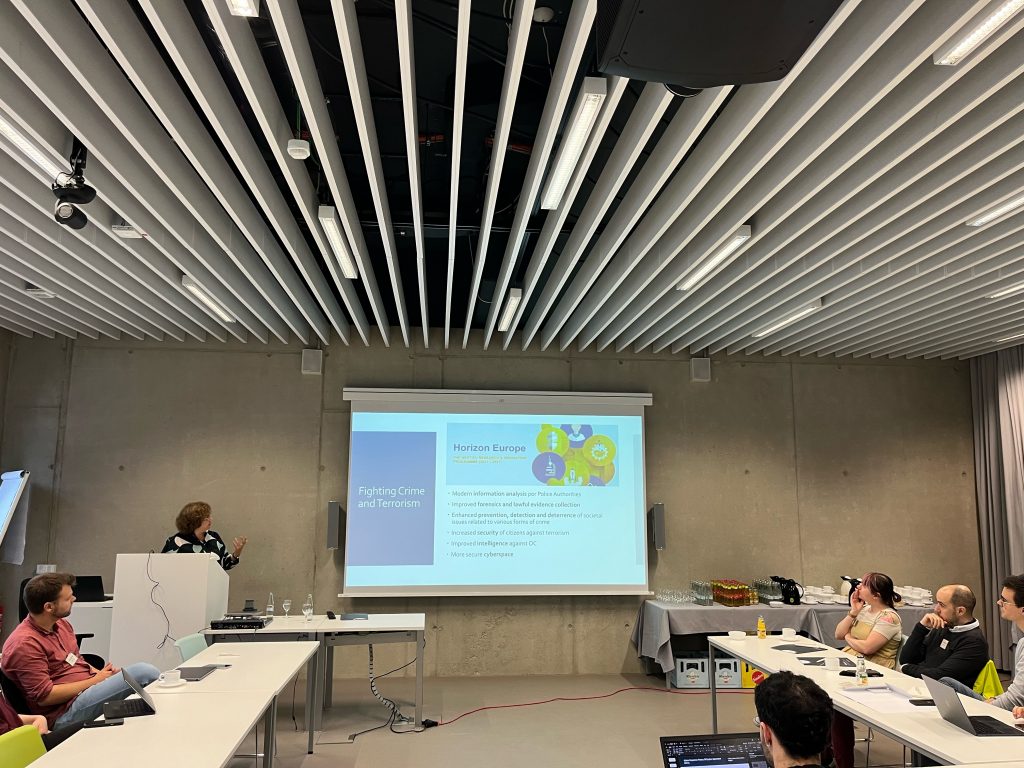
Researcher Patricia Faraldo analyzes the challenges of using AI for police purposes at the workshop on "Open Science and Open Data in European Criminological Research"
The CITIC researcher from UDC, Patricia Faraldo, participated on September 24 and 25 in the workshop “Open Science and Open Data in European Criminological Research” at the Institute of Sociology and Social Psychology of the University of Cologne, Germany.
During her presentation, Faraldo presented her paper titled “Personal data collected by LEAs and their re-use for scientific research: Horizon Europe and the European legal framework,” in which she analyzed the challenges and obstacles faced by scientific research in the field of artificial intelligence (AI) applied to law enforcement. Her study addressed a recurring issue: the lack of access to specific and high-quality data provided by law enforcement agencies, which limits the development and validation of new tools and technologies in this field.
Faraldo explained that the reluctance of police forces to share databases and operational information with academia and industry, due to concerns related to data protection and security, creates a vicious circle. The lack of access to this data hinders the creation of advanced machine learning (ML) models and other data-intensive tools, which in turn prevents security professionals from effectively evaluating these solutions in real operational environments.
In her analysis, Faraldo also explored the European legal framework applicable to the use of personal data collected by law enforcement for scientific research purposes. Through a comprehensive overview of the European legal context regarding police data, she highlighted how confusion about legal obligations and excessive restrictions hinder data sharing between law enforcement and other relevant actors.
Finally, the researcher concluded that the main obstacles to greater collaboration in data sharing are due to both legal complexity and a culture of secrecy within security agencies, which limits access to information internally.





